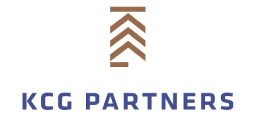The Budapest Chamber of Commerce (“BCC”) in May 2022 proposed the change of the system of the itemised tax of small businesses (“KATA”). The main goals of the change are to keep the advantages of the system, but also to prevent and eliminate unlawful tax avoidance.
Since its introduction, over 450,000 entrepreneurs choose this type of tax due to its low tax amount and the easy administration procedure. The amount of KATA, since its introduction in 2013, remained unchanged, while the national minimum wage nearly doubled in the same period. As a result, many companies use the KATA system as an alternative to employment, which reduces the tax revenues of the state.
According to BCC, the previous change – namely that taxpayers should pay a 40% tax in case they pay a total amount of over 3 million Hungarian forints, calculated cumulatively from 1 January each year, to the same small taxpayer – failed to fulfil its ambitions. According to the preliminary expectations, around 100,000 taxpayers should have been involved with this payment, however only fragments of this amount were realized. While, according to the survey of the BCC in which over 6,000 entrepreneurs were involved in 2020, more than 42% of the entrepreneurs could accept an increase in the amount of KATA if the ease of the administration remains unchanged.
According to the experts of BCC, it is vital to incorporate the increase of the minimal wage into the KATA to ensure the pension rights for the full time KATA entrepreneurs, while the correction with other taxes is also important to eliminate the competitive disadvantage. BCC confirmed that it investigates the tax behaviours of the part time KATA entrepreneurs as well as it also provides considerable scope for abuse. The introduction of a new specific job-related tax regulation is also under examination, and it also investigates the possibility to use the database of the invoicing system connected the Hungarian Tax Authority for the audits to minimize the tax avoidance as much as possible.
After finalisation of the proposals, BCC intends to launch online conversation with the entrepreneurs and negotiation with professional organizations.
By Gabriella Galik, Partner, KCG Partners Law Firm


